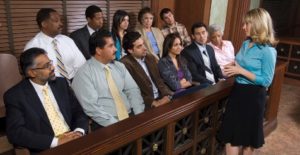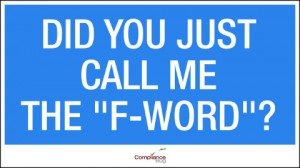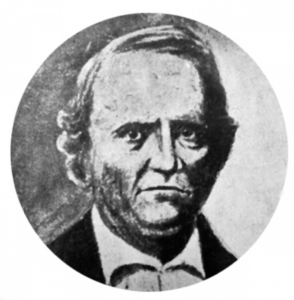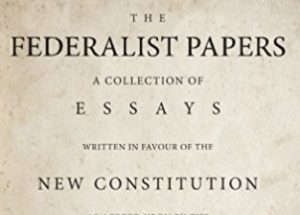 In Bethel v. Quilling Selander – what is now the second (here is the first) opinion to note the distinction between “issues” and “arguments” after the Fifth Court’s March 29 en banc opinion in St. John Missionary Baptist Church v. Flakes – the Court observed: “Courts may not consider issues that were not raised in the courts below, but parties are free to construct new arguments in support of issues properly before the court. Thus, to the extent Bethel’s assertion is an argument as opposed to an issue, we address it.” (emphasis in original, citation omitted). The Court was also willing to consider a defense of attorney immunity in the context of a Rule 91 motion to dismiss, notwithstanding other intermediate Texas authority that takes a narrower focus in that procedural setting. No. 05-17-00850-CV (May 30, 2018) (mem. op.)
In Bethel v. Quilling Selander – what is now the second (here is the first) opinion to note the distinction between “issues” and “arguments” after the Fifth Court’s March 29 en banc opinion in St. John Missionary Baptist Church v. Flakes – the Court observed: “Courts may not consider issues that were not raised in the courts below, but parties are free to construct new arguments in support of issues properly before the court. Thus, to the extent Bethel’s assertion is an argument as opposed to an issue, we address it.” (emphasis in original, citation omitted). The Court was also willing to consider a defense of attorney immunity in the context of a Rule 91 motion to dismiss, notwithstanding other intermediate Texas authority that takes a narrower focus in that procedural setting. No. 05-17-00850-CV (May 30, 2018) (mem. op.)
Monthly Archives: May 2018
 “On the morning of April 11, the . . . bus picked up Taylor’s group, the majority of whom were senior citizens, and embarked for the casino. The accident occurred soon after the bus had merged onto the President George Bush Turnpike from State Highway 161. [The driver] and Taylor disagreed over whether to continue on the turnpike, which is a paid tollway. [The driver] crashed the bus while discussing this issue with Taylor. The bus drifted onto the shoulder, struck a crash attenuator, and then veered across the road and struck a concrete barrier, after which it rolled onto its side.” The jury found that the casino was vicariously liable for Taylor’s distraction of the driver under a number of agency theories; under the deferential standard of review for a jury’s verdict, the Fifth Court affirmed. Choctaw Nation v. Sewell, No. 05-16-01011-CV (May 29, 2018) (mem. op.)
“On the morning of April 11, the . . . bus picked up Taylor’s group, the majority of whom were senior citizens, and embarked for the casino. The accident occurred soon after the bus had merged onto the President George Bush Turnpike from State Highway 161. [The driver] and Taylor disagreed over whether to continue on the turnpike, which is a paid tollway. [The driver] crashed the bus while discussing this issue with Taylor. The bus drifted onto the shoulder, struck a crash attenuator, and then veered across the road and struck a concrete barrier, after which it rolled onto its side.” The jury found that the casino was vicariously liable for Taylor’s distraction of the driver under a number of agency theories; under the deferential standard of review for a jury’s verdict, the Fifth Court affirmed. Choctaw Nation v. Sewell, No. 05-16-01011-CV (May 29, 2018) (mem. op.)
 A common issue about attorneys’ fees awards in commercial cases involves “allocation” between activity for which fees are recoverable (speaking generally, contract claims), and those for which they are not (again generally, related business tort claims. A variant of that issue appeared in Anderton v. City of Cedar Hill, in which the City recovered attorneys’ fees in a declaratory judgment dispute with property owners about permissible land use. Unfortunately for the City, the fee award proved to have a weak connection to the four pieces of property at issue in the litigation:
A common issue about attorneys’ fees awards in commercial cases involves “allocation” between activity for which fees are recoverable (speaking generally, contract claims), and those for which they are not (again generally, related business tort claims. A variant of that issue appeared in Anderton v. City of Cedar Hill, in which the City recovered attorneys’ fees in a declaratory judgment dispute with property owners about permissible land use. Unfortunately for the City, the fee award proved to have a weak connection to the four pieces of property at issue in the litigation:
- as to “Lot 4,” while the City argued that its use was a main objective of the litigation, the parties’ pleadings did not in fact make a claim about it, and the landowners voluntarily ceased to occupy it at some point during the litigation;
- as to “Lot 5,” the parties’ claims were mooted by zoning amendments that came after the majority of the fees incurred about it;
- as to “Lot 6,” while “[t]he City appears to have accomplished some, although not all, of its objectives,” “the [property owners] appear to have been largely successful in defending their use of” the lot, if not their construction on it;
- and as to “Lot 7,” the parties largely agreed upon the resolution of their issues.
Accordingly, after examining “the parties’ claims, objectives, and outcomes” about the lots, the Fifth Court concluded that a $166,000 fee award under the declaratory judgment statute was not “equitable or just.” No. 05-17-00138-CV (May 25, 2018).
 While 600Commerce does not ordinarily cover the Texas Supreme Court, the opinion in Lujan v. Navistar is of unusually broad interest to civil litigators. Navistar contended that Lujan made inconsistent statements about the ownership of a group of trucks, and that as a result, Lujan’s affidavit testimony on the point should be diregarded as a “sham.” The Texas Supreme Court agreed that this was a viable concept in state court summary judgment practice: “Most Texas courts of appeals have recognized the sham affidavit rule as a legitimate component of a trial judge’s authority under Rule 166a to grant summary judgment when no genuine issue as to any material fact exists. The rule has long been applied throughout the federal court system under Rule 56, which contains language nearly identical to Rule 166a. We agree with the majority view that a trial court’s authority to distinguish between genuine and non-genuine fact issues includes the authority to apply the sham affidavit rule when confronted with evidence that appears to be a sham designed to avoid summary judgment.” No. 16-0588 (April 27, 2018).b
While 600Commerce does not ordinarily cover the Texas Supreme Court, the opinion in Lujan v. Navistar is of unusually broad interest to civil litigators. Navistar contended that Lujan made inconsistent statements about the ownership of a group of trucks, and that as a result, Lujan’s affidavit testimony on the point should be diregarded as a “sham.” The Texas Supreme Court agreed that this was a viable concept in state court summary judgment practice: “Most Texas courts of appeals have recognized the sham affidavit rule as a legitimate component of a trial judge’s authority under Rule 166a to grant summary judgment when no genuine issue as to any material fact exists. The rule has long been applied throughout the federal court system under Rule 56, which contains language nearly identical to Rule 166a. We agree with the majority view that a trial court’s authority to distinguish between genuine and non-genuine fact issues includes the authority to apply the sham affidavit rule when confronted with evidence that appears to be a sham designed to avoid summary judgment.” No. 16-0588 (April 27, 2018).b
 A majority of the Fifth Court recently held in St. John Missionary Baptist Church v. Flakes that “construing [Tex. R. App. P] 38.9(b) to require us to identify and suggest briefing on issues not raised by an appellant would depart from our duty to be neutral and impartial.” No. 05-16-00671-CV (March 29, 2018) (en banc). As a counterpoint to that bright-line rule, in a different context, a later panel noted in American Realty Trust v. Andrews Kurth: “We cannot consider issues raised for the first time in a reply brief. But the distinction between issues and arguments is not always clear.” No. 05-16-01433-CV 05-16-01433-CV (May 8, 2018) (mem. op.) (citations omitted, quoting authorities saying that “[Appellant] was not required on appeal or at trial to rely on precisely the same case law or statutory subpart that we now find persuasive” and “We do not consider issues that were not raised in the courts below, but parties are free to construct new arguments in support of issues properly before the Court.”)
A majority of the Fifth Court recently held in St. John Missionary Baptist Church v. Flakes that “construing [Tex. R. App. P] 38.9(b) to require us to identify and suggest briefing on issues not raised by an appellant would depart from our duty to be neutral and impartial.” No. 05-16-00671-CV (March 29, 2018) (en banc). As a counterpoint to that bright-line rule, in a different context, a later panel noted in American Realty Trust v. Andrews Kurth: “We cannot consider issues raised for the first time in a reply brief. But the distinction between issues and arguments is not always clear.” No. 05-16-01433-CV 05-16-01433-CV (May 8, 2018) (mem. op.) (citations omitted, quoting authorities saying that “[Appellant] was not required on appeal or at trial to rely on precisely the same case law or statutory subpart that we now find persuasive” and “We do not consider issues that were not raised in the courts below, but parties are free to construct new arguments in support of issues properly before the Court.”)
An unfortunate domestic situation led to the issue presented in Markl v. Leake – whether a married couple could “use fiduciary law to recoup m oney [the husband] spent on making repairs to the property of a woman with whom he had a ten-year clandestine relationship.” The Fifth Court reviewed precedent and an academic commentary that observed: “Relationships, not individuals, are the prime concern of fiduciary law,” which focuses on “the degree of dependence and vulnerability that exists within” a particular relationship, as well as “the value of the interaction to the society at large.” From that foundation, the Court concluded: “Whether [the] relationship contained aspects similar to a marriage is unavailing because, in this case, [the husband] was married – to [the wife and co-plaintiff]. Recognizing [the] relationship as fiduciary in character, under the circumstances here, would make light of the very notion of the concepts of trust and confidence.” No. 05-17-00174-CV (May 14, 2018) (mem. op.)
oney [the husband] spent on making repairs to the property of a woman with whom he had a ten-year clandestine relationship.” The Fifth Court reviewed precedent and an academic commentary that observed: “Relationships, not individuals, are the prime concern of fiduciary law,” which focuses on “the degree of dependence and vulnerability that exists within” a particular relationship, as well as “the value of the interaction to the society at large.” From that foundation, the Court concluded: “Whether [the] relationship contained aspects similar to a marriage is unavailing because, in this case, [the husband] was married – to [the wife and co-plaintiff]. Recognizing [the] relationship as fiduciary in character, under the circumstances here, would make light of the very notion of the concepts of trust and confidence.” No. 05-17-00174-CV (May 14, 2018) (mem. op.)
 At trial, the judge “stated the parties did not have a contract and it was taking the quantum meruit claim under advisement ‘to make a determination as to damages.'” But the judgment awarded damages for breach of contract, and the judge then
At trial, the judge “stated the parties did not have a contract and it was taking the quantum meruit claim under advisement ‘to make a determination as to damages.'” But the judgment awarded damages for breach of contract, and the judge then  entered findings of fact and conclusions of law that “the parties operated under an express contract.” Problem? No: “[W]ritten orders or judgments control over conflicting oral pronounements. . . . [T]he trial court’s written findings supersede any oral statements.” Kaur-Gardner v. Keane Landscaping, No. 05-17-00230-CV (May 14, 2018) (mem. op.)
entered findings of fact and conclusions of law that “the parties operated under an express contract.” Problem? No: “[W]ritten orders or judgments control over conflicting oral pronounements. . . . [T]he trial court’s written findings supersede any oral statements.” Kaur-Gardner v. Keane Landscaping, No. 05-17-00230-CV (May 14, 2018) (mem. op.)
 The explosion of economic growth and suburban sprawl into once-rural Collin County has produced a complex map of cities and their extra-territorial jurisdiction. The subtleties of that map engulfed the Custer Storage Center (right), who became involved in a dispute between the County and the City of McKinney (oddly enough, the county seat) about what construction permits were required. Held: “The City lacks authority to require a
The explosion of economic growth and suburban sprawl into once-rural Collin County has produced a complex map of cities and their extra-territorial jurisdiction. The subtleties of that map engulfed the Custer Storage Center (right), who became involved in a dispute between the County and the City of McKinney (oddly enough, the county seat) about what construction permits were required. Held: “The City lacks authority to require a  landowner developing property in its ETJ to obtain City building permits, inspections and approvals, and pay related fees. However, the City possesses authority—to the exclusion of the County—to regulate all subdivision plats and related permits for property in the City’s ETJ.” Collin County v. City of McKinney, No. 05-17-00546-CV (May 10, 2018). (Texas pioneer Collin McKinney (left), for whom both the city and county are named, would no doubt have had conflicting loyalties for this dispute.)
landowner developing property in its ETJ to obtain City building permits, inspections and approvals, and pay related fees. However, the City possesses authority—to the exclusion of the County—to regulate all subdivision plats and related permits for property in the City’s ETJ.” Collin County v. City of McKinney, No. 05-17-00546-CV (May 10, 2018). (Texas pioneer Collin McKinney (left), for whom both the city and county are named, would no doubt have had conflicting loyalties for this dispute.)
 From publishing 600Camp about the Fifth Circuit, I have learned that as a result of the Erie doctrine, a substantial body of federal precedent addresses state-law issues, especially the contract and tort issues that commonly arise in homeowner wrongful foreclosure cases. Conversely, Texas courts have created a body of state authority about federal-law issues. Neither system’s intermediate court opinions bind the other, leading occasionally to a case like Osadon v. C&N Renovation Inc., in which the Dallas Court of Appeals declined to follow a Fifth Circuit opinion on a point of bankruptcy law, concluding (along with several other courts outside the Circuit) that the text of the relevant Code section dictated a different result. No. 05-17-00453-CV (May 9, 2018) (mem. op.)
From publishing 600Camp about the Fifth Circuit, I have learned that as a result of the Erie doctrine, a substantial body of federal precedent addresses state-law issues, especially the contract and tort issues that commonly arise in homeowner wrongful foreclosure cases. Conversely, Texas courts have created a body of state authority about federal-law issues. Neither system’s intermediate court opinions bind the other, leading occasionally to a case like Osadon v. C&N Renovation Inc., in which the Dallas Court of Appeals declined to follow a Fifth Circuit opinion on a point of bankruptcy law, concluding (along with several other courts outside the Circuit) that the text of the relevant Code section dictated a different result. No. 05-17-00453-CV (May 9, 2018) (mem. op.)
 The trial court found an oral contract to sell Xena, an “elite-pedigreed female Labrador retriever,” finding that the plaintiff established the partial-performance exception to the statute of frauds. .” The appellant challenged that conclusion, arguing that “his own partial performance is not ‘unequivocally referable’ to the contract to sell Xena . . . his leaving Xena with the [other side] in July 2013 is equally consistent with his prior conduct of leaving a dog with [them] for training.” The Fifth Court disagreed, observing: “[I]t is not [Appellant’s] partial performance that is at issue; instead, it is [Appellees’] performance, which was established by their testimony and their documentary evidence . . . Partial performance takes a contract out of the statute of frauds when the party seeking enforcement of the contract partially performed.” McCain v. Promise House, No. 05-16-00598-CV (May 7, 2018) (mem. op.)
The trial court found an oral contract to sell Xena, an “elite-pedigreed female Labrador retriever,” finding that the plaintiff established the partial-performance exception to the statute of frauds. .” The appellant challenged that conclusion, arguing that “his own partial performance is not ‘unequivocally referable’ to the contract to sell Xena . . . his leaving Xena with the [other side] in July 2013 is equally consistent with his prior conduct of leaving a dog with [them] for training.” The Fifth Court disagreed, observing: “[I]t is not [Appellant’s] partial performance that is at issue; instead, it is [Appellees’] performance, which was established by their testimony and their documentary evidence . . . Partial performance takes a contract out of the statute of frauds when the party seeking enforcement of the contract partially performed.” McCain v. Promise House, No. 05-16-00598-CV (May 7, 2018) (mem. op.)
 Rhymes sued Maria Hernandez for injuries arising from a car accident. Hernandez ultimately defaulted. During the course of the proceedings, “Rhymes’ attorney was also communicating with [United Automobile Insurance Services, a claims-handling service] about the accident and attempting to settle his personal injury claim . . . . UAIS made several unsuccessful attempts to contact [the insured parties] about the matter before the default judgment was signed.” As to notice, “[t]he evidence established that [Hernandez] never gave notice of suit to or requested a defense from UAIS or Old American [Insurance Company].”
Rhymes sued Maria Hernandez for injuries arising from a car accident. Hernandez ultimately defaulted. During the course of the proceedings, “Rhymes’ attorney was also communicating with [United Automobile Insurance Services, a claims-handling service] about the accident and attempting to settle his personal injury claim . . . . UAIS made several unsuccessful attempts to contact [the insured parties] about the matter before the default judgment was signed.” As to notice, “[t]he evidence established that [Hernandez] never gave notice of suit to or requested a defense from UAIS or Old American [Insurance Company].”
Rhymes then sued to collect on Hernandez’s policy. The Fifth Court reversed a summary judgment in his favor and rendered judgment for the defendants, finding that notice was a condition precedent to coverage under the policy, and rejecting two arguments made by Rhymes about the practicalities of the situation:
- “Rhymes also argues that the notice of suit provision was actually satisfied here because his attorney sent appellants copies of the petition in the underlying suit and confirmation of service on Maria. . . . Notice given by a third party does not trigger the insurer’s duty to defend and does not estop the insurer from asserting the insured’s breach as a bar to liability.”
- And as to prejudice, while the defendants’ “claim file relating to the accident showed that appellants viewed coverage as ‘clear’ and liability as ‘accepted,'” the default judgment established prejudice as a matter of law, as it “not only deprived appellants of the opportunity to litigate the claim’s merits but also imposed ‘a new burden of proof on new issues’ in order to set the default judgment aside.”
United Automobile Insurance Services v. Rhymes, 05-16-01125-CV (May 4, 2018) (mem. op.)
 After a detour to Austin on an important but infrequent procedural issue, the Fifth Court turned to the merits of Pak v. Ad Villarai LLC; holding as follows on the issue of whether Pak was properly removed from his management positions:
After a detour to Austin on an important but infrequent procedural issue, the Fifth Court turned to the merits of Pak v. Ad Villarai LLC; holding as follows on the issue of whether Pak was properly removed from his management positions:
The evidence showed written notice was given three days after the action removing Pak as member and co-manager. The notice was given to both Pak and Harrison. Both had full knowledge, yet the testimony at trial showed neither objected. In his reply brief, Pak complains the consent was taken while the two sides were in litigation against each other, so there “was no way the Trial Court should have reasoned Chan Pak would have consented from being removed” from Villas-Manager by appellees. Pak does not provide any legal authority to support his position, nor can we agree that (1) the statute does not apply if the parties are in litigation or (2) the trial court was required to guess at Pak’s reasons for failing to object. Nothing on the face of the statute requires either. Under section 101.359 of the business organizations code, Pak and Harrison’s consent to Pak’s removal as co-manager was established by their failure to object.
No. 05-14-01312-CV (May 5, 2018) (mem. op.)
 Assuming arguendo – a considerable assumption given recent opinions on the point – that “manifest disregard of the law” is a viable challenge to an arbitration award, it did not apply even to a threshold issue such as standing when: “The parties agree that the arbitrator heard evidence and argument offered by both parties on the question of Sricom’s capacity to recover on its counterclaim. This evidence included Sricom’s certificate of authority to do business in Texas, the parties’ contract, and evidence of the parties’ alleged breaches and when those breaches occurred. The arbitrator’s acceptance of Sricom’s arguments and evidence instead of C Tekk’s, even if erroneous, was not manifest disregard of the law.” C Tekk Solutions, Inc. v. Sricom, Inc., No. 05-17-00845-CV (May 1, 2018) (mem. op.)
Assuming arguendo – a considerable assumption given recent opinions on the point – that “manifest disregard of the law” is a viable challenge to an arbitration award, it did not apply even to a threshold issue such as standing when: “The parties agree that the arbitrator heard evidence and argument offered by both parties on the question of Sricom’s capacity to recover on its counterclaim. This evidence included Sricom’s certificate of authority to do business in Texas, the parties’ contract, and evidence of the parties’ alleged breaches and when those breaches occurred. The arbitrator’s acceptance of Sricom’s arguments and evidence instead of C Tekk’s, even if erroneous, was not manifest disregard of the law.” C Tekk Solutions, Inc. v. Sricom, Inc., No. 05-17-00845-CV (May 1, 2018) (mem. op.)